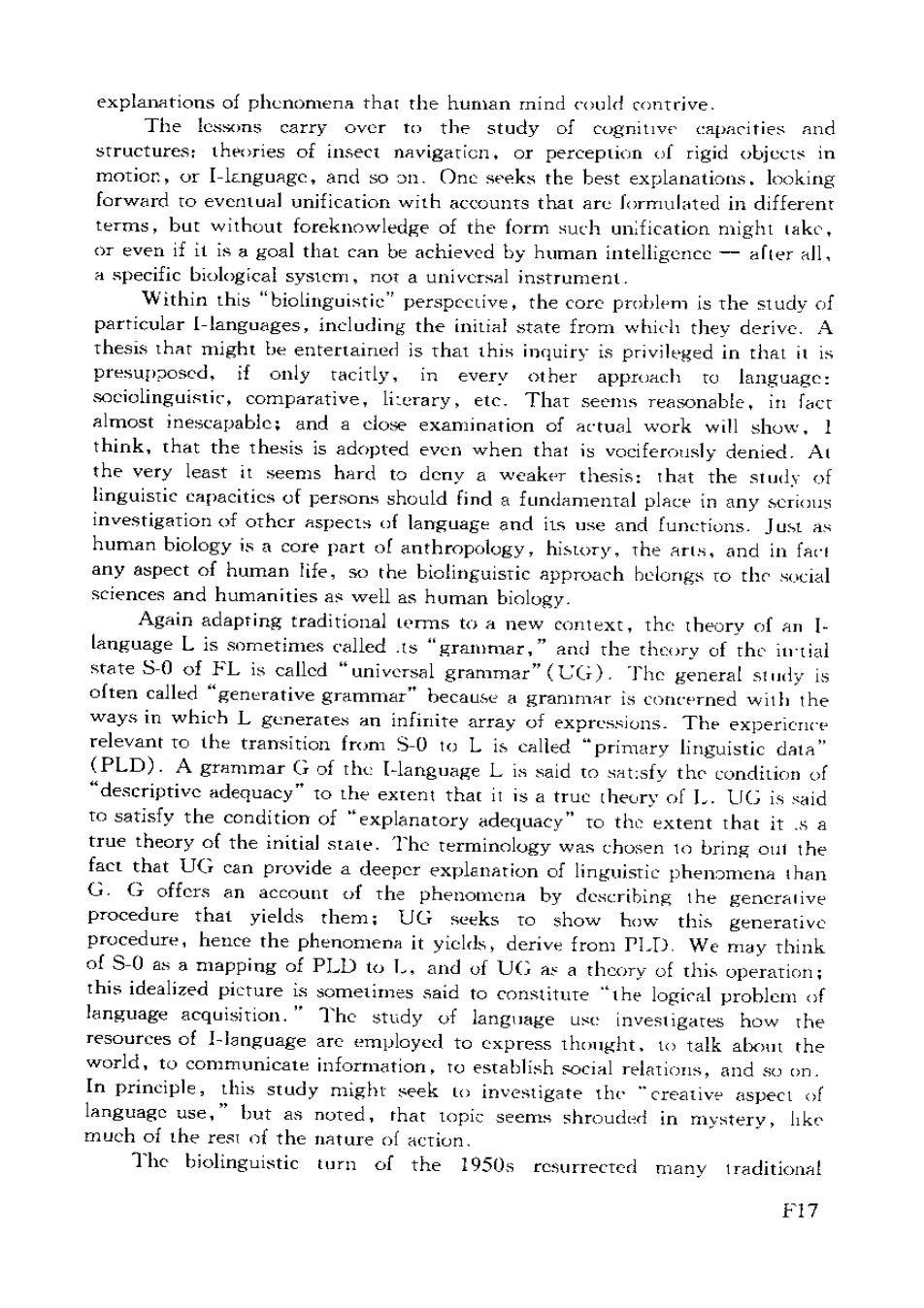正在加载图片...

explanations of phenomena that the human mind could contrive. The lessons carry over to the study of cognitive capacities and structures:theories of insect navigaticn,or perception of rigid objects in motior,or I-languagc,and so on.One seeks the best explanations.looking forward to eventual unification with accounts that are formulated in different terms,but without foreknowledge of the form such unification might take, or even if it is a goal that can be achieved by human intelligence--after all, a specific biological sysicm,not a universal instrument. Within this "biolinguistic"perspcctive,the core problem is the study of particular I-languages,including the initial state from which they derive.A thesis that might be entertained is that this inquiry is privileged in that it is presupposed,if only tacitly,in every other approach to language: sociolinguistic,comparative,literary,etc.That seems reasonable,in fact almost inescapablc;and a close examination of actual work will show.I think,that the thesis is adopted even when that is vociferously denied.At the very least it seems hard to deny a weaker thesis:that the study of linguistic capacitics of persons should find a fundamental place in any scrious investigation of other aspects of language and its use and functions.Just as human biology is a core part of anthropology,history,the arts,and in fact any aspect of human life,so the biolinguistic approach belongs to the social sciences and humanities as well as human biology. Again adapting traditional terms to a new context,the theory of an I- language L is sometimes calledts "grammar,"and the theory of the iutial state S-0 of FL is called "universal grammar"(UG).The general study is often called "generative grammar"because a grammar is concerned with the ways in which L generates an infinite array of expressions.The expericnce relevant to the transition from S-0 to L is called "primary linguistic data" (PLD).A grammar G of the:I-language L is said to sat:sfy the condition of "descriptive adequacy"to the extent that it is a true theory of I..UG is said to satisfy the condition of "explanatory adequacy"to the extent that it .s a true theory of the initial state.The terminology was chosen 1o bring out the fact that UG can provide a deeper explanation of linguistic phenomena than G.G offers an account of the phenomena by describing the gencrative procedure that yields them;UG seeks to show how this generative procedure,hence the phenomena it yiclds,derive from PLD).We may think of S-0 as a mapping of PLD to I..and of UG as a theory of this operation; this idealized picture is sometimes said to constitute "the logical problem of language acquisition."The study of language use investigates how the resources of I-language are employed to express thought,to talk about the world,to communicate information,to establish social relations,and so on. In principle,this study might seek to investigate the "creative aspect of language use,but as noted,that topic seems shrouded in mystery,hke much of the rest of the nature of action. The biolinguistic turn of the 1950s resurrected many traditional F17